Mary is a nurse with a long history of caring for elderly patients. Ten years ago her husband, Lloyd, was diagnosed with dementia. He was 62.
“I am the oldest of six daughters. My experience with dementia started when I was eight years old. I shared a bedroom with my grandmother, who moved from her home in Nova Scotia to live with us. When my youngest sister was born I was eight and we ran out of bedrooms. So it was decided I would move in with my grandmother – I literally shared her double bed. I was thrilled because I worshiped her. I was the oldest, and with all those other little girls, she probably gave me more attention than my mother was able to.”
“In her late 70s, my grandmother developed dementia. She would pack up all the bedding and say she was going home to Nova Scotia. I was taught to just make the bed up again when she was not in the room, and remind her that she lived with us now. She was definitely the reason I went into nursing and specialized in care of the elderly.”
“I also placed my mother and aunt in long term care and have had a 45-year nursing career caring for the elderly.”
But none of that prepared me for this journey. Dementia is a horrible, cruel disease.
“After Lloyd was diagnosed, I decided to leave Perth and move to our cottage by the Mississippi River. Many questioned why we were moving there, thinking we should be closer to support and services. It was Lloyd’s favourite place on the planet, and where all of our family get togethers were held. I wanted us to be there.”
“We lived there for three years until it just wasn’t working anymore. We were fairly isolated and he developed some health issues, which meant we were coming to Kingston often. Kingston was where we met, where we began our story. So we moved here.”
Are you glad you lived in the cottage for the three years?
“Absolutely! I just sold it last week. That was devastating because we had it for close to 25 years. I have told him, but it hasn’t sunk in.”
“Lloyd is definitely not the person I once knew. Even physically, he is starting to have difficulty walking. Dementia has taken away everything that he loved. He was the smartest guy I have ever known.”
“He is not difficult; he is not resistant. But he needs total care. It’s like dressing a child. Lloyd doesn’t understand anything you ask him to do. Even when I ask him to lift up his foot so I can put on his sock, he doesn’t know what that means. But he is not suspicious or paranoid. He’s agreeable to going to programs.”
I see glimpses of the old Lloyd when I have to put his coat on when we are going out.
“I have to guide his arms into the sleeve and zip him up. But when I turn my back to get my coat out of the closet, he always comes over and helps me with my coat. Without fail. He can’t figure out how to put on his own coat, but when he sees me reaching for mine, he will come over to help me.”
“He is usually up at least once a night, sometimes five times. Then there will be a couple of nights where he will sleep 11 hours. It’s like with a baby – every night is different, every day is different. I have been very fortunate because we both have access to programs. I go to a support group which I find helpful.”
“He really loves his group at the Alzheimer Society. His background was in economic development and he was used to meetings. He thinks he’s at a meeting. He sits at a table with four people. He will tell me how productive the meeting was. That they got this grant approved and got funding. It makes total sense to him but of course it’s totally out of context.”
“I usually have music on here. Golden oldies from our day. Last week an old song by the Platters came on and I got him up to dance. That was nice because I can’t really get him engaged in anything much anymore. I thought he would love the view from the condo but he is oblivious to his environment.”
How do you manage?
“I have four sisters here and lots of friends. Lloyd is at a day program three times a week, which gives me some time to myself. And I talk to family. They are all very supportive. He goes to bed at 7:30 and people know to phone me after then. But evenings can be lonely. I think of all the things that we did, because we had a wonderful life. He was an amazing guy.”
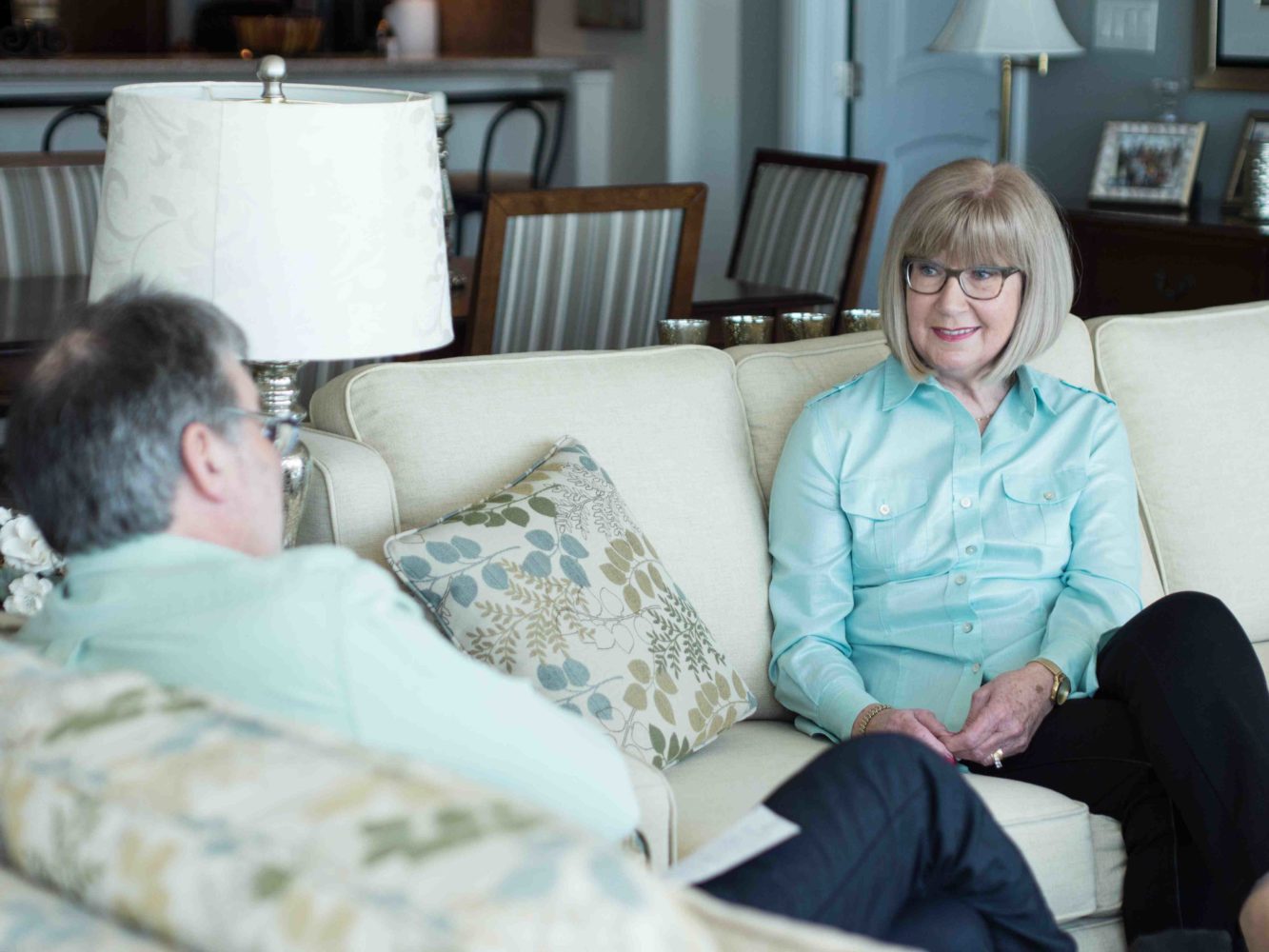
“Last fall I kept being told I should get him on the list for long term care because it could take two months to two years for a bed to come up. That’s a huge range! I filled out the form and barely two months later, I got a call saying they had a bed. I would have had to move him two days before Christmas, and I just said no. I was not ready. It had barely been two months and I was definitely not ready to do that two days before Christmas. So, they closed his file. I have to wait three months before the file can be opened again.”
“Placing Lloyd [in long-term care] is going to be without a doubt the most difficult decision I ever have to make. I have to know that it’s the right time. It’s more about the right time for me; when I decide I can’t do this anymore.”
“I don’t want to be bad mouthing the Community Care Access Centres or ruffling any feathers because I need them, but it’s kind of like one size fits all. They have their list and there could be a frail 90-year-old and then there’s Lloyd, and whoever is next on the list gets the offer. You get one shot at it. If they happen to call after I had several sleepless nights I’d say yes. But if it was after a night where he had slept 12 hours I might say, ‘No, I can keep doing this.’”
“They are coming back next week and we will start the whole process again. Again, it might be two months or it might be two years. I really have an issue with that – the uncertainty and the take-it-or-leave-it when a bed comes up.”
At the time when you need support, you are given an ultimatum. That’s the way it felt: an ultimatum.
“A friend placed her husband a year ago and it’s not a lot easier once they are in long term care. She still goes there twice a day every day. I can see myself doing that. And I am going to worry about him at night. He is up a lot at night and can’t find his way to the bathroom. He can’t get back into bed or cover himself up. I am thinking, ‘What’s going to happen to him at night?’But I know I will have to place him soon.”
“I’ve had some unexpected positive experiences since we started this. Lloyd was being followed for a cardiac issue and we would see a different cardiologist every time we went. It was decided to implant a pacemaker. Then we saw a wonderful young guy, a fellow in cardiology, who said, ‘Wait a minute. I think we need to look at the whole picture here.’ We talked about it, and decided not to implant the pacemaker because Lloyd’s biggest problem isn’t with his heart. I was impressed that the fellow thought beyond his specialty.”
“A letter was delivered to my door by the superintendent from a gentleman that lives in the building who I hadn’t met. He had seen us in the elevator. It was a lovely letter offering to stay with Lloyd if I wanted to go out and have coffee or go for a walk. He told me that he was very involved with his mother and she had Alzheimer’s. That was just totally unexpected.”
How has this affected your kids?
“Profoundly. He was an amazing dad and very involved with our three kids. They cope in different ways. One of our daughters is a scientist so she takes a more pragmatic view.”
“Our grandchildren range in age from 21 to one. The older ones have great memories because Lloyd taught them many things. Canoeing is really big in our family. My son happened to see a movie trailer on a new film about canoeing and arranged for a private viewing at a theatre downtown for Lloyd’s birthday. I wasn’t sure how much Lloyd would get out of it, but it was more about the children and grandchildren celebrating and connecting with him through memories of something that they all loved.”
“It’s horrible for everybody. There’s no two ways about it. He is still in his early 70s.”

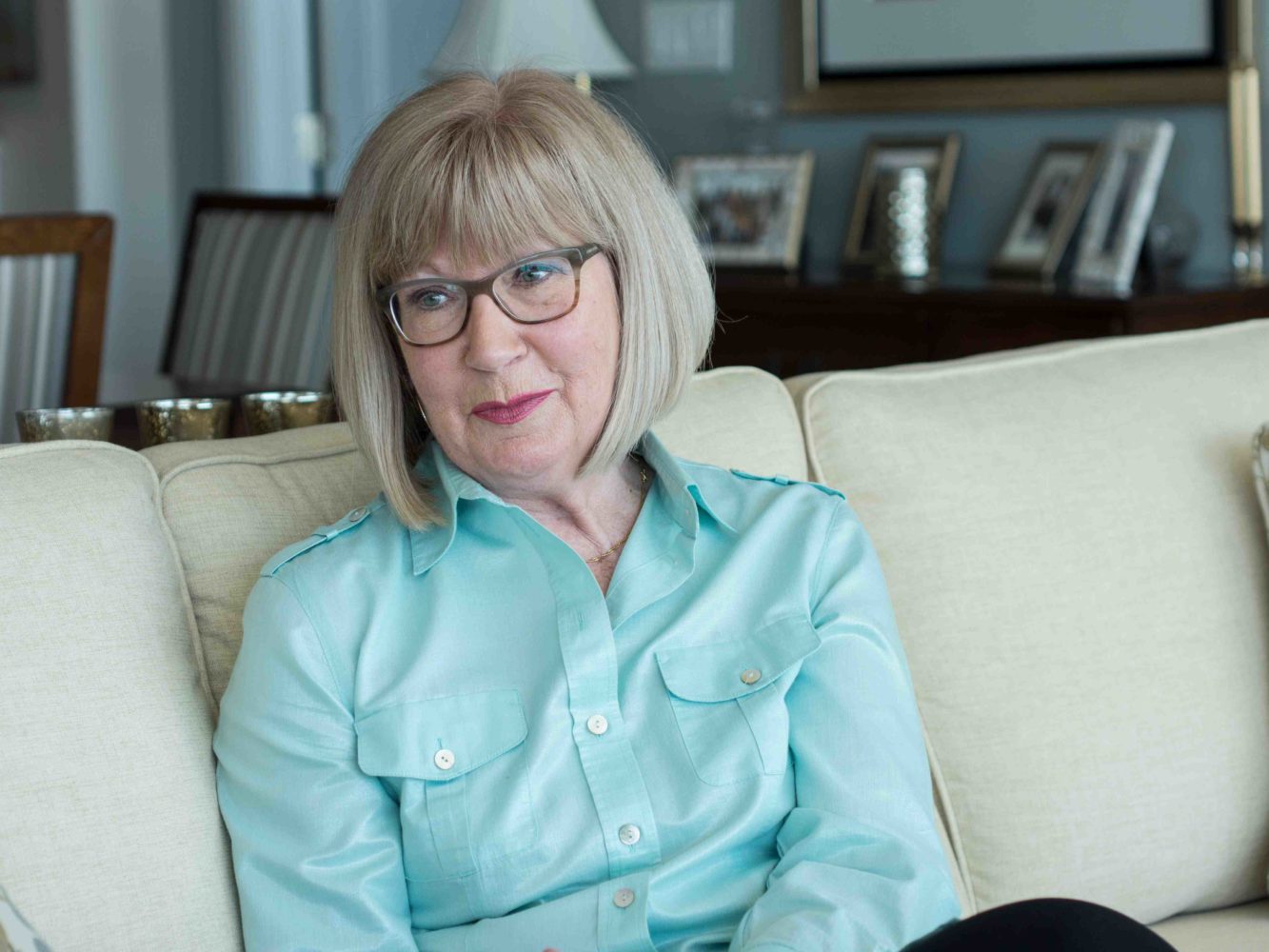
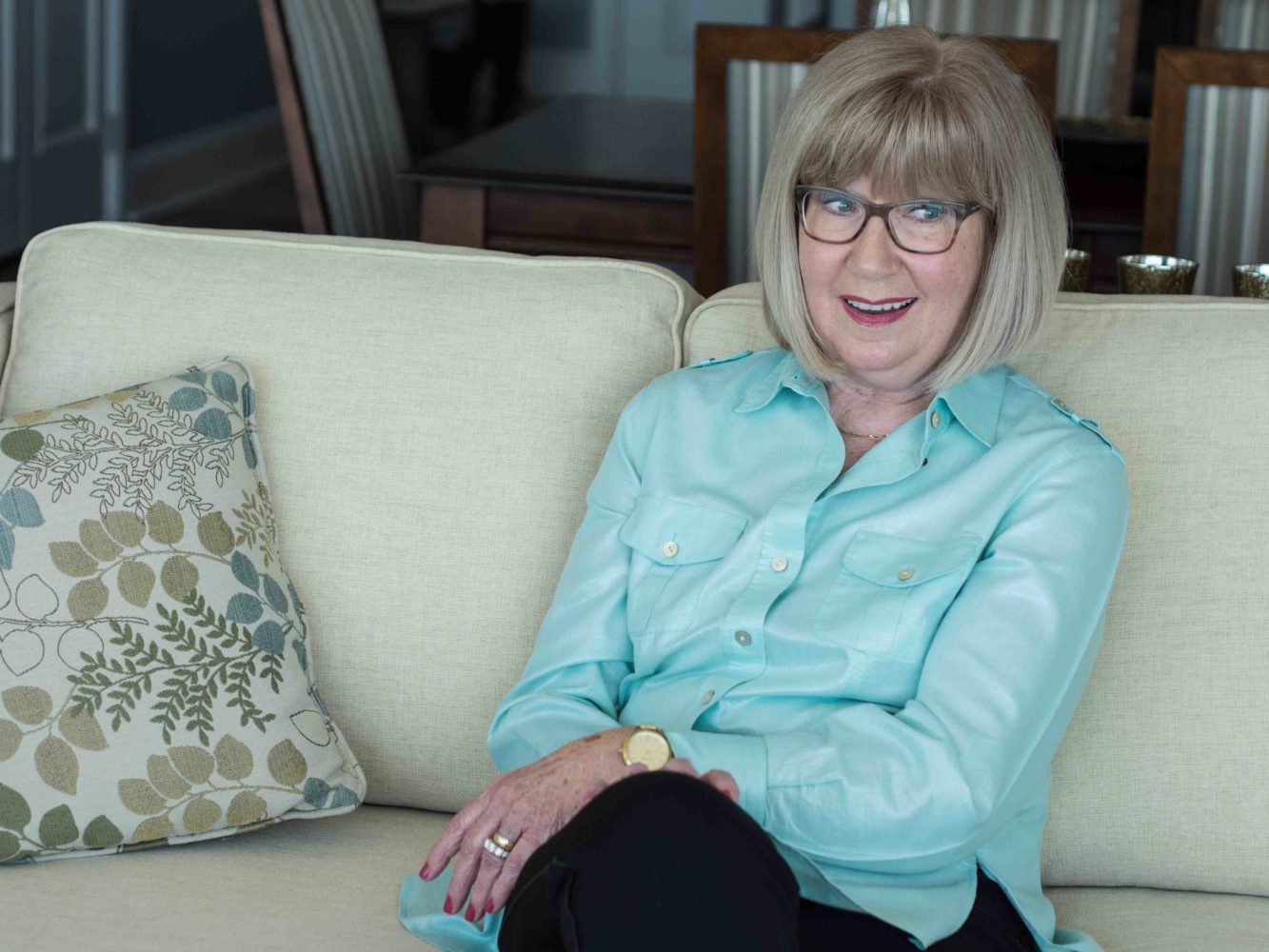
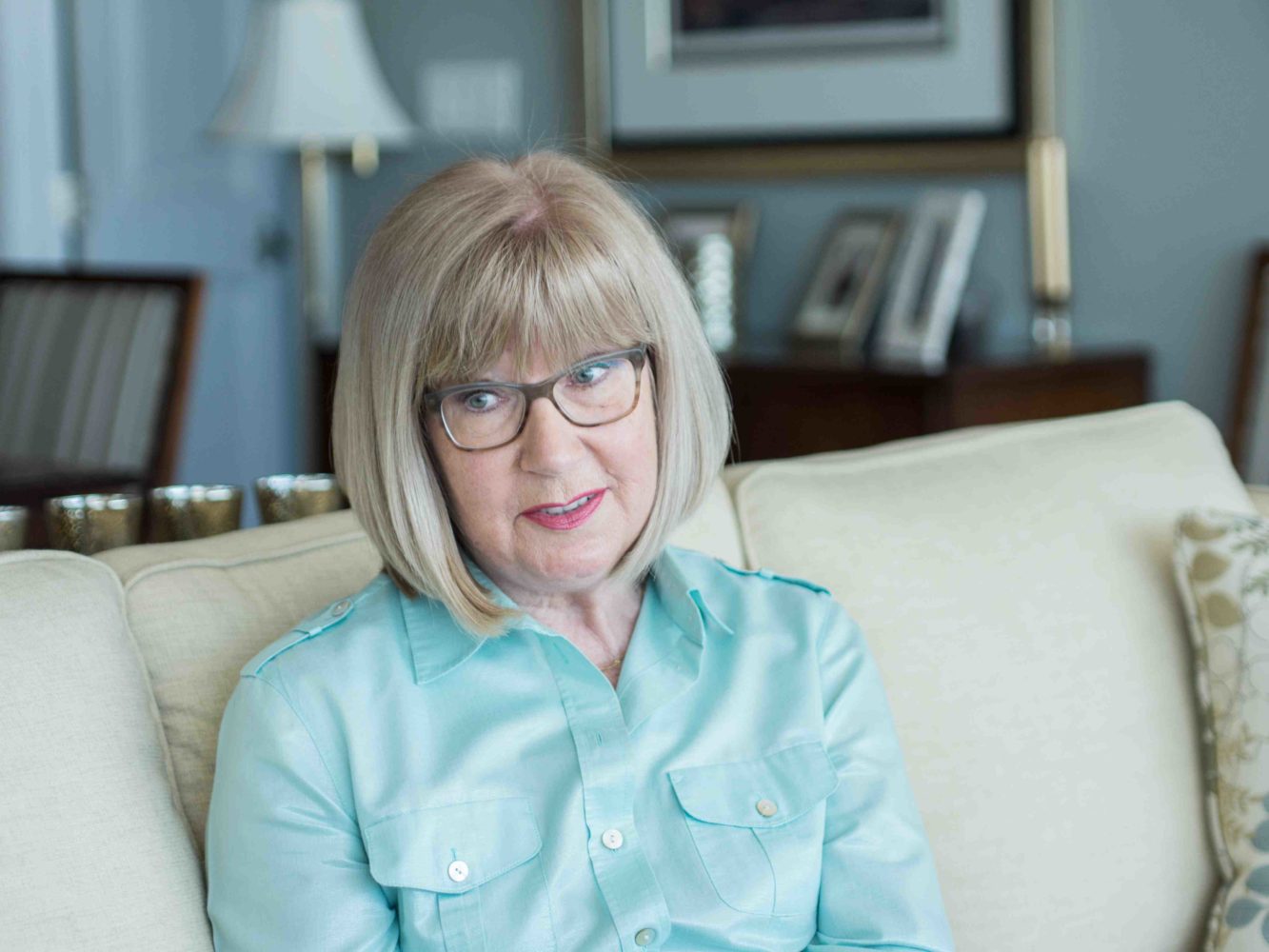
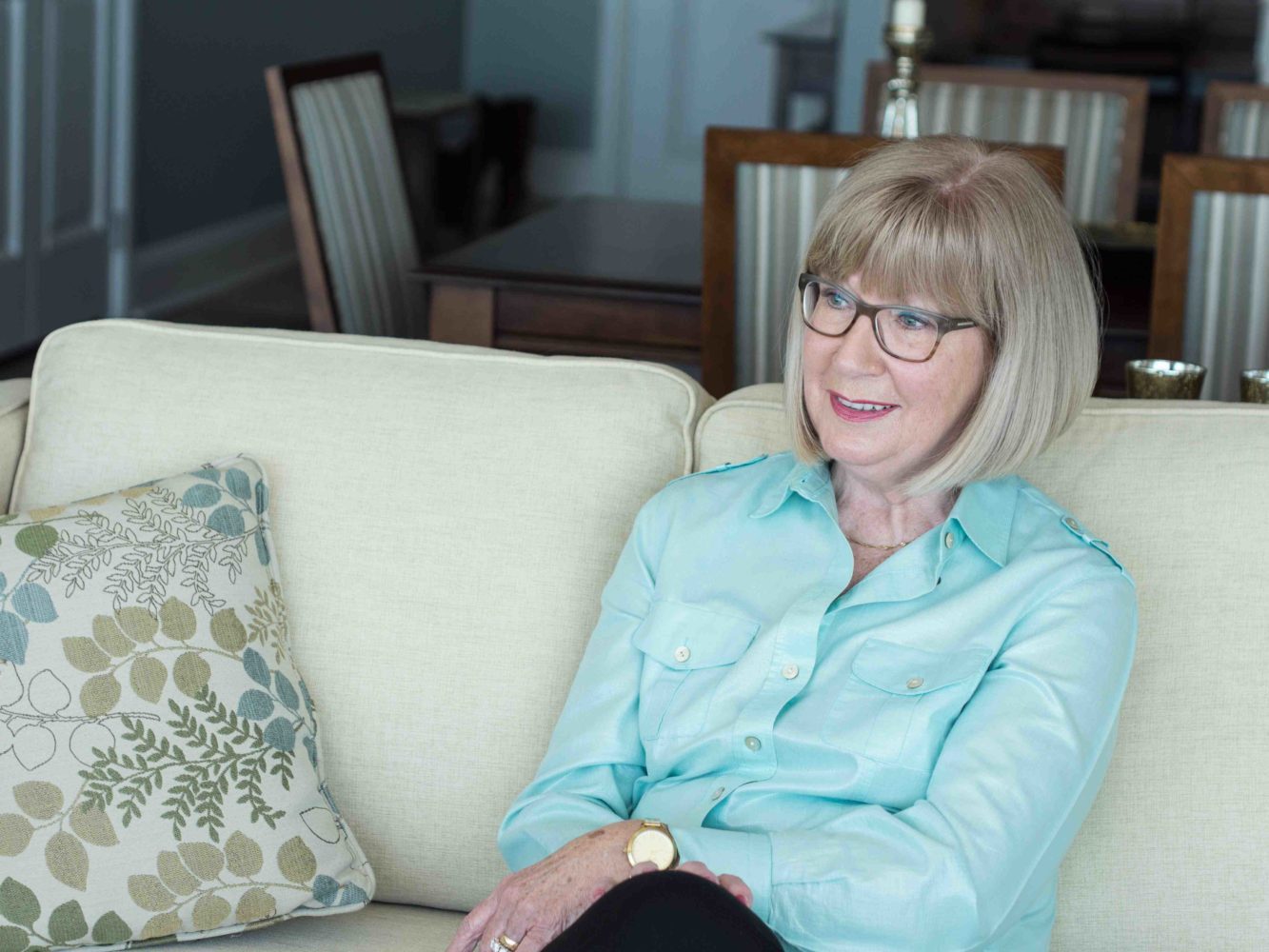

The comments section is closed.